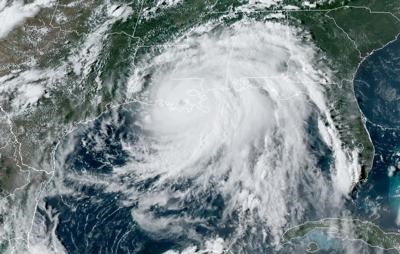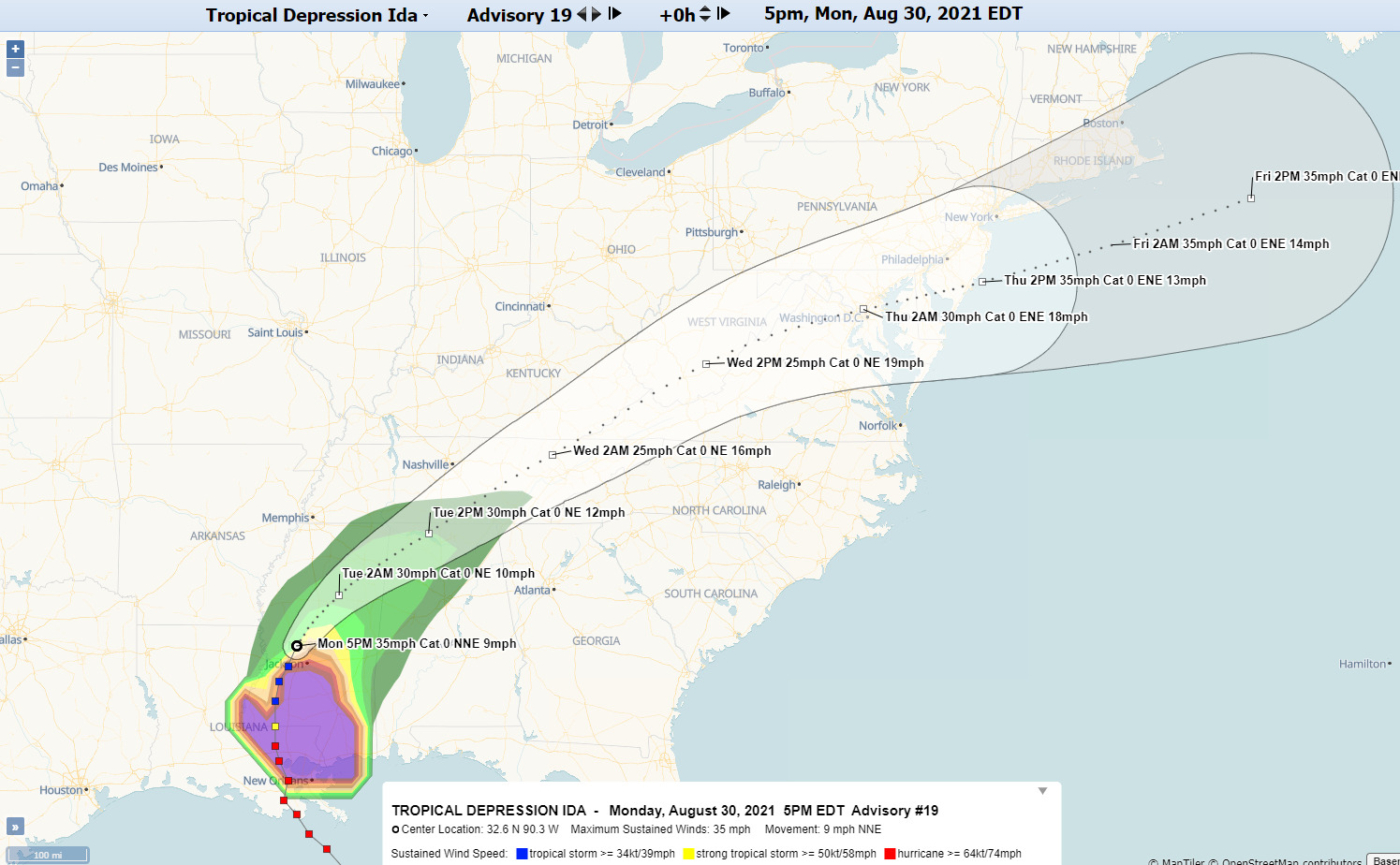
Update on Tropical Depression Ida

Update on Tropical Depression Ida
As Tropical Depression Ida continues its northward track, the International Code Council reminds its members and partners to remain alert to continuing risks from the remnants of this devastating storm. Heavy rainfall and flash flooding continues to spread over much of Louisiana, Mississippi, and western Alabama. Dangerous and life-threatening winds including tornadoes continue to pose a threat to people and communities in Ida’s path.

Considerable flash, urban, and riverine flooding continues across southeast Louisiana, Mississippi, and western Alabama. Rivers levels in the Lower Mississippi Valley will remain elevated into next week. As Ida moves inland, additional flooding is likely across portions of the Tennessee Valley, the Ohio Valley, as well as the Central and Southern Appalachians into the Mid-Atlantic through Thursday. Lifesaving and life sustaining actions in affected areas remain the priority for federal, state, and local governments.

Government Assistance for Code Organizations following Ida
President Biden has issued a major disaster declaration for the State of Louisiana. Major disaster declarations for the states of Mississippi and Alabama may follow. Code officials are reminded that FEMA recently announced a new disaster policy specifically aimed at providing much needed assistance for code officials and floodplain managers during disaster response and initial recovery for up to 180 days following a major disaster declaration. This policy, administered under FEMA’s Public Assistance program, offers reimbursement for critical community functions such as building code administration, code enforcement, floodplain management administration and enforcement, and conducting substantial damage surveys inspections in affected communities. For more information, visit the Code Council’s resource page.
Also, following the declaration of a major disaster FEMA’s Hazard Mitigation Grant Program (HMGP) provides funding to governments and communities so they can rebuild in a way that reduces or mitigates future disaster losses in communities. Typically, HMGP funds are available statewide and are not limited only to declared counties. Post-disaster code enforcement including inspections, National Flood Insurance Program (NFIP) Substantial Damage determinations and other disaster-resistant building codes projects are allowable expenses under HMGP. For more information contact your Code Council Government Relations Regional Manager or Karl Fippinger, Vice President - Government Relations, Fire and Disaster Mitigation at kfippinger@iccsafe.org.
Disaster Response Alliance
As an aid to community disaster response, the Code Council and the National Council of Structural Engineers Associations (NCSEA) sponsor the Disaster Response Alliance (DRA). The DRA maintains a national database of skilled, trained, and certified building safety professionals who are standing by and ready to assist communities in need. The DRA has assembled a cadre of skilled code officials, engineers, and others from across the country who are willing to assist with post-disaster safety assessments, building damage assessments, inspections, and surge support for other code-related functions. The Disaster Response Alliance brings together skilled, volunteer second responders in one place for easy access and quick mobilization. Federal, state, local, tribal, and territorial entities may request assistance directly through the DRA web site.
Interested in becoming a DRA resource?
The DRA is always looking for volunteers. If you or someone you know is interested in becoming a DRA second responder resource, please visit the Volunteer Now link on the DRA web site. Architects, engineers, and building safety professionals willing to make a difference during times of disaster are encouraged to apply. The DRA is also looking for individuals with specialized skills, knowledge, or abilities such as plans examiners, permit technicians, and building inspectors.
FEMA’s FY2021 Building Resilient Infrastructure and Communities (BRIC) Program
The Code Council and FEMA support community-based mitigation strategies that decrease risk and repetitive loss while increasing a community’s resilience to disasters. As part of those strategies, the adoption and enforcement of building codes has been identified as one of the five priorities of FEMA’s FY2021 BRIC program. Eligible building code adoption and enforcement activities for the proposed BRIC program are activities that:
- Evaluate adoption and/or implementation of codes that reduce risk
- Enhance existing adopted codes to incorporate more current requirements or higher standards
- Develop professional workforce capabilities through technical assistance and training
The BRIC program application period opens September 30, 2021 and closes January 28, 2022.
